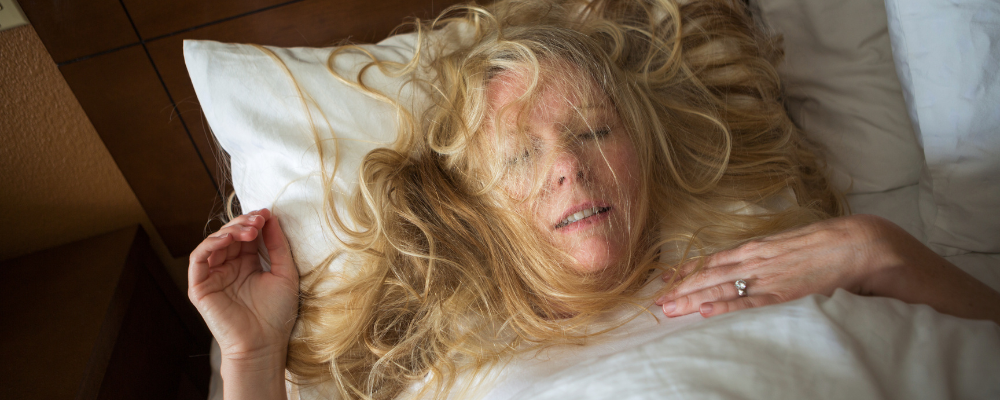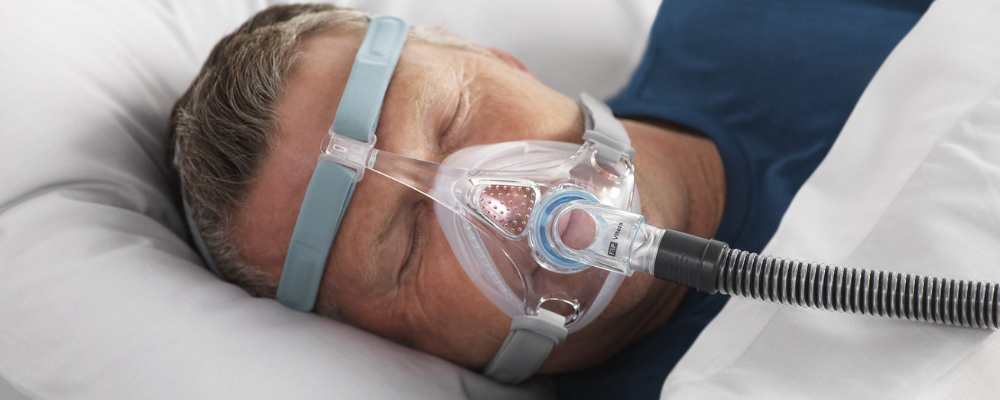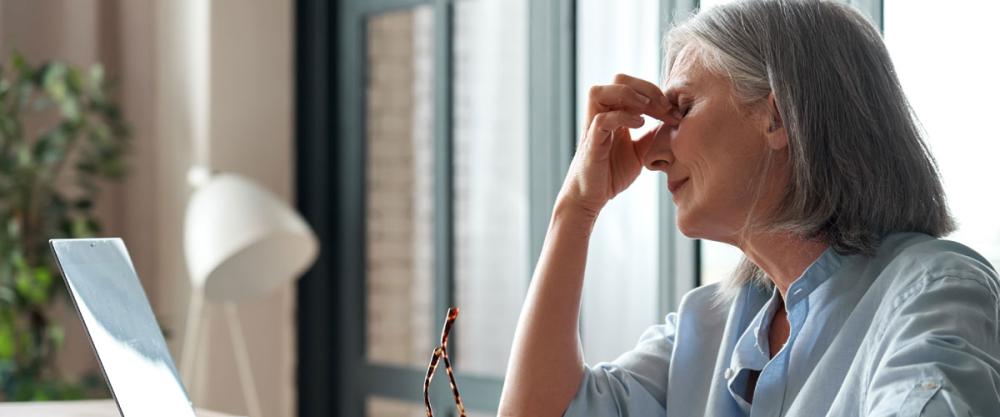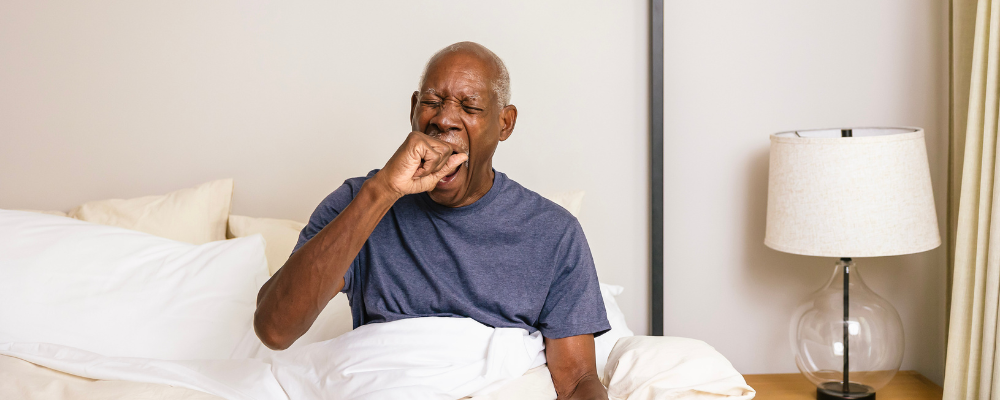From headaches to excessive daytime fatigue, Obstructive Sleep Apnea (OSA) comes with a myriad of side effects. Night sweats can be one of them. Why is that? Today, Aeroflow Sleep takes a look at why we sweat, then asks Dr. Carleara Weiss, our top Sleep Science Advisor, about the connection between sleep apnea and night sweats, treatment options, and more.
IN THIS ARTICLE:
The Connection Between Sleep Apnea & Night Sweats
Can You Stop Sleep Apnea Night Sweats?
Aeroflow Sleep Covers PAP Supplies Through Insurance
CPAP SUPPLIES THROUGH INSURANCE:
Aeroflow Sleep is in-network with most primary insurance companies and is accreditted by Medicare and Medicaid. Complete our Qualify Through Insurance Form, and we will automatically check to see if your plan covers CPAP supplies; including a machine, mask, and accessories. ***Must have a sleep study to qualify.***
You will also receive the care and attention every sleep apnea patient deserves; one-on-one clinical support in-home or via telehealth, a dedicated Sleep Specialist you can contact during business hours, and a user-friendly online portal with tailored replacement schedule, important updates and notifications, and educational resources.
Let us take the headache out of healthcare. Join the Aeroflow Sleep family today! It only takes 5-7 minutes to get started.
Why Do We Sweat?
Sweating, perspiration, whatever you call it—this natural process is a direct, cause-and-effect, cardiovascular response where the sweat glands secrete mostly water and a little bit of salt. It helps release toxins, regulate your body temperature, and can alert you to the presence of danger or disease. And, each reason for sweating has a time and place. For example…
Daytime Sweating
Here’s a new take on “rise and shine:” a scorcher in the forecast probably means some daytime sweating is in order, especially when The Sun reaches its zenith. Sweating keeps you cool by allowing the water in your body to exit and evaporate, which is why it’s so important to drink plenty of fluids when it’s hot; you’re replenishing the water lost from sweating and preventing heat stroke.
With this in mind, we become more aware of our sweat once we are active. Exercising promotes perspiration, because the more you engage your interior (muscles,) the more your exterior (skin) heats up. So, as long as you’re not working out in conditions hotter than your skin temperature (generally 93℉,) you are successfully regulating your body temperature through sweat.
Helping to release toxins also happens when you exercise, but many confuse sweating in this context with losing weight. It isn’t the sweat that’s causing you to slim down. In fact, sweating could be just as prevalent in gaining mass; like when you’re a bodybuilder. Sweating is simply indicative of burning fat and calories, because you are being physical; thus ultimately repairing your body post-workout.
Nighttime Sweating
Unless you imbibed before bed, your run of the mill nighttime sweating is not indicative of a toxin release; just temperature regulation. That daytime scorcher can just as easily prevail through the evening if you live in extreme climatic conditions. Or, your sleep hygiene may not be set up for temperature control; you may sleep in heavy blankets, have the thermostat turned up too high, or lack air conditioning altogether. These are all culprits of nighttime sweating.
Don’t forget; an alert to danger is the third reason for sweating. Because perspiring can be a stress response, another form of nighttime sweating may be accompanied by nightmares or night terrors. Your body is protecting itself by activating its primal fight or flight mode, regardless of whether or not you really need it. After all, the boogie man isn’t going to get you no matter how much you sweat.
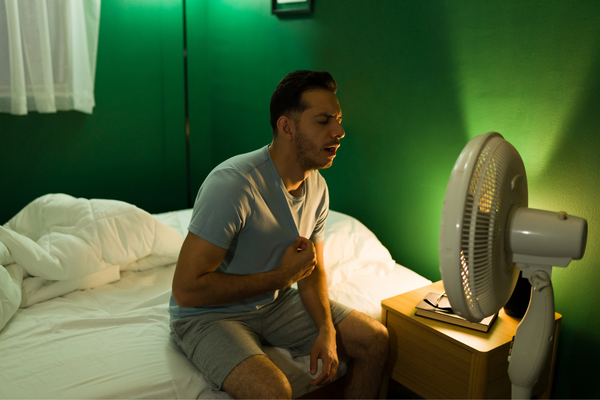

Hyperhidrosis & Diaphoresis
Excessive sweating is also a fight or flight response, happening during the day or night, and is categorized as hyperhidrosis or diaphoresis. Hyperhidrosis is, for example, what you experience when you suffer from panic attacks and other mental health disorders. It can manifest in the armpits, on the palms of your hands and feet, or from the face. Unfortunately, hyperhidrosis can be embarrassing, causing further anxiety still. However, it’s easily diagnosed and often treatable.
Diaphoresis alerts our body to disease rather than danger. Now, “disease” is a broad term as far as excessive sweating goes, because diaphoresis really means “excessive sweating due to a secondary condition.” That secondary condition may be from hot flashes brought on by menopause, which is a perfectly normal side effect. It may be the release of toxins when you’re fighting a cold and run a fever. Or, it may be your sleep disorder, OSA.
The Connection Between Sleep Apnea & Night Sweats
The American Journal of Managed Care (AJMC) states, “The prevalence of night sweats in adults is between 10% and 41%, which can be caused by medical conditions, including OSA. Previous research has found that approximately 30% of patients with OSA report having night sweats.” More than 936 million have OSA worldwide, so that prevalence affects more than 100 million people.
Dr. Carleara Weiss concurs, “Night sweats have been connected to hypoxia—a low oxygen level in the blood,” which is exactly what the study published in the AJMC related the prevalence of night sweats to as well; 52.7% who had night sweats also had hypoxia and/or hypoxemia (low oxygen level in the tissue.) Both are important and make sense as connections between sleep apnea and night sweats; a lack of blood flow can harm Central Sleep Apnea (CSA) patients while collapsed tissue obstructing the upper airway can harm OSA patients.
"Night sweats have been connected to hypoxia—a low oxygen level in the blood. Additionally, people with untreated OSA experience higher cortisol levels during the night when breathing stops. The body temperature rises due to elevated cortisol levels, possibly leading to night sweats."
- Dr. Carleara Weiss
“Additionally,” says Dr. Weiss, “people with untreated OSA experience higher cortisol levels during the night when breathing stops.” Cortisol is our body’s primary stress hormone, and an imbalance brought on by your sleep disorder will trick your brain into beginning the fight or flight response without any dangers. Therefore, “the body temperature rises due to elevated cortisol levels, possibly leading to night sweats,” she concludes.
Can You Stop Sleep Apnea Night Sweats?
These connections sound scary, and although sleep apnea cannot be cured, the night sweats symptom may be stopped. “Night sweats may be a sign of something [else] going wrong with the body,” Dr. Weiss continues, “…preventing night sweats like those with gastroesophageal reflux (GERD) — the night sweats should stop once the GERD gets treated.”
Of course, whether or not it can be stopped is entirely dependent on the underlying cause. “Menopause is the most difficult to manage,” Dr. Weiss confesses, “People with menopause and OSA should find relief with CPAP therapy. For those with untreated OSA, adherence to CPAP treatment is the best approach to prevent or stop night sweats.
“CPAP therapy will provide positive airway pressure (PAP) to keep the airways from closing during sleep and ensure adequate oxygen reaches the system. As a result, adherence to CPAP therapy prevents hypoxia, maintains stable oxygenation during sleep, and can reduce (or stop) night sweats in those individuals experiencing it due to OSA.”
Aeroflow Sleep Covers PAP Supplies Through Insurance
If you or a loved one suffers from night sweats and has not looked into sleep apnea as the connection, ask your doctor if a sleep study is right for you. This simple, overnight test will determine whether or not you have sleep apnea and need CPAP therapy, and if you do, tell them to refer you to Aeroflow Sleep. We work hard to get you the treatment you deserve, covered up to 100% through insurance.
References
Leonard, Jayne. Are Night Sweats a Sign of Alcohol Withdrawal? Edited by Stacy Sampson, Medical News Today, 23 Aug. 2022, https://www.medicalnewstoday.com/articles/324104.
Staff, Mayo Clinic. “Excessive Sweating.” Health Information, Mayo Clinic, 25 Aug. 2022, https://www.mayoclinic.org/symptoms/excessive-sweating/basics/definition/sym-20050780.
Staff, Cleveland Clinic. “DIaphoresis.” Disease & Conditions, Cleveland Clinic, 28 Nov. 2022, https://my.clevelandclinic.org/health/diseases/24496-diaphoresis.
Bonavitacola, Julia. Night Sweats Associated With Hypoxia in People With OSA. The American Journal of Managed Care, 7 Sept. 2022, https://my.clevelandclinic.org/health/diseases/24496-diaphoresis.


